
Thinking about living in Paris, France? You lucky dog.
Whether you’re considering moving to Paris for a job opportunity, attending college, supporting a spouse’s career or finally fulfilling a life-long dream, this article was written with you in mind.
The perks of living in Paris can’t be overstated, but I don’t want to sugarcoat it: the adjustment is fierce. As with most places, daily life in Paris will require some sacrifices that are worth considering before buying that (exciting) one-way ticket. To get a better understanding of daily life in Paris, I connected with my childhood friend David, who moved to Paris (from NYC) 12 years ago.
I met up with David during my last trip to Paris to iron out some details. My husband and I are considering moving to Paris for 2 years in the near future, so I asked for some guidance. I thought it’d be helpful to share David’s perspective on the honest pros and cons of living in Paris from an American’s point-of-view. Let’s dive in!
Pros & Cons of Living in Paris
(Table of Contents)
Daily Life in Paris (Table of Contents)
Paris is a divine section of eternity.
E. E. Cummings
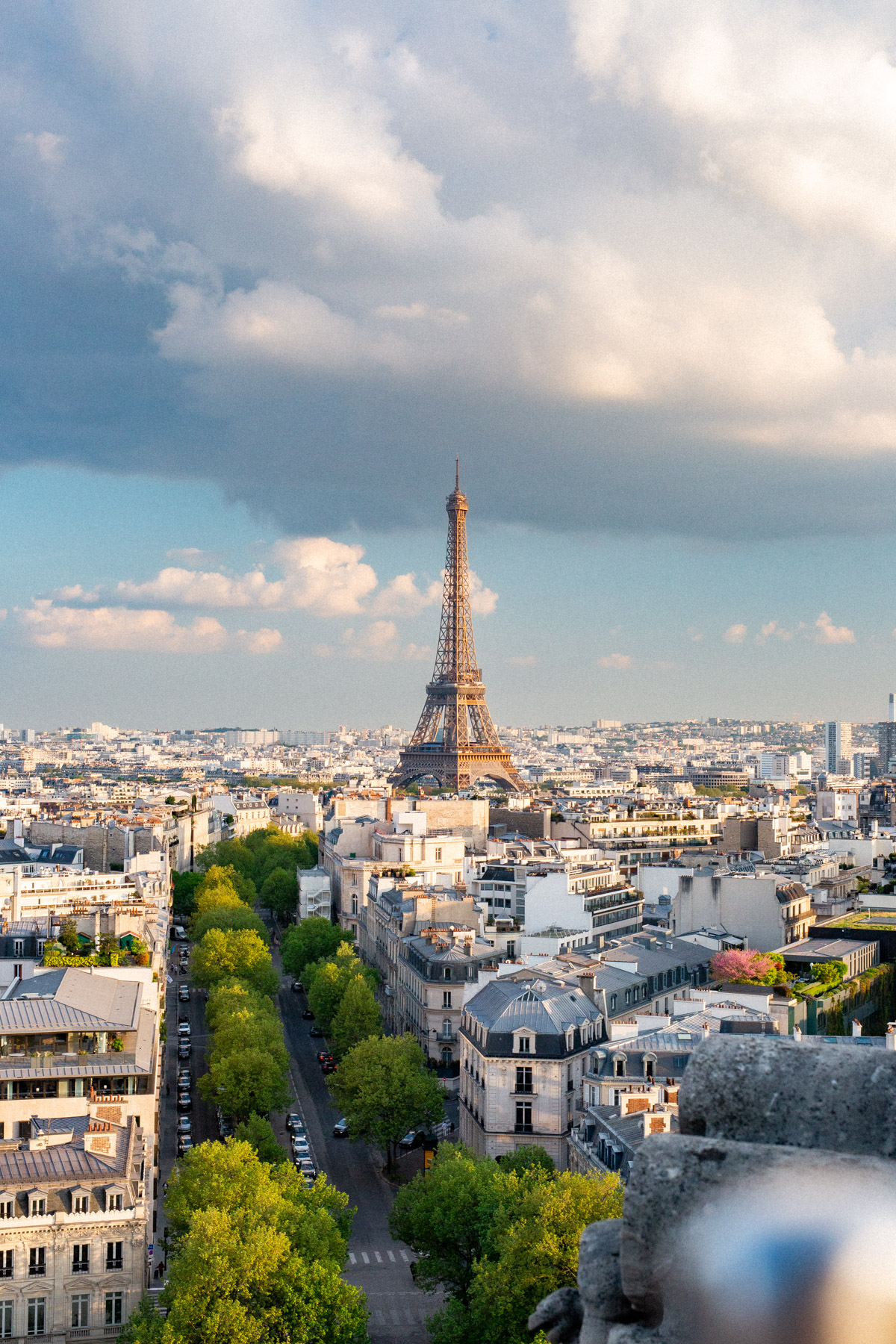
Let’s Discuss the Perks of Living in Paris First
The City is Inspiring
Often considered the most beautiful city in the world, I’m hardly the first to tell you that living in Paris is nothing short of inspiring. For ages, books, movies and songs have been romanticizing the appeal of Paris, and it’s hard to deny that the city is irresistible.
Even after living in Paris for 12 years, I still find myself awestruck by the beauty on random walks. Sometimes, while walking home from a late evening with friends, I’ll look up at the skyline and pinch myself, it’s hard to believe that Paris can be the backdrop of my daily errands.
All this to say, living in Paris feels like a dream (most of the time). From stunning architecture to top-notch street fashion and cozy cafes, there’s no shortage of inspiration to be found.
But for the sake of keeping my personal rant short, I’ll say living in Paris is beautiful and provides experiences you won’t get anywhere else in the world.
When spring comes around to Paris, the humblest mortal alive must feel that he dwells in paradise.
Henry Miller
Paris is a Global City
As the capital of France, Paris is one of the most influential cities in the world. It attracts more than 30 million visitors a year, which keeps the city well-connected to emerging trends. Global cities are heavily influenced by other countries, which results in more interesting fashion option, robust cuisine and an interesting mix of culture.
But it goes beyond dining and clothes, being a global city also means having access to vast business opportunities. As companies grow, they expand into global cities and offer job opportunities that span the gamut.
Likewise, Paris attracts the biggest names in entertainment and culture. The city is a must-stop for international stars, rotating museum exhibits and sporting events.
Best of all, living in Paris exposes you to people from all corners of the world. You’ll have an opportunity to expand your social circle and enrich your understanding of different cultures and values.
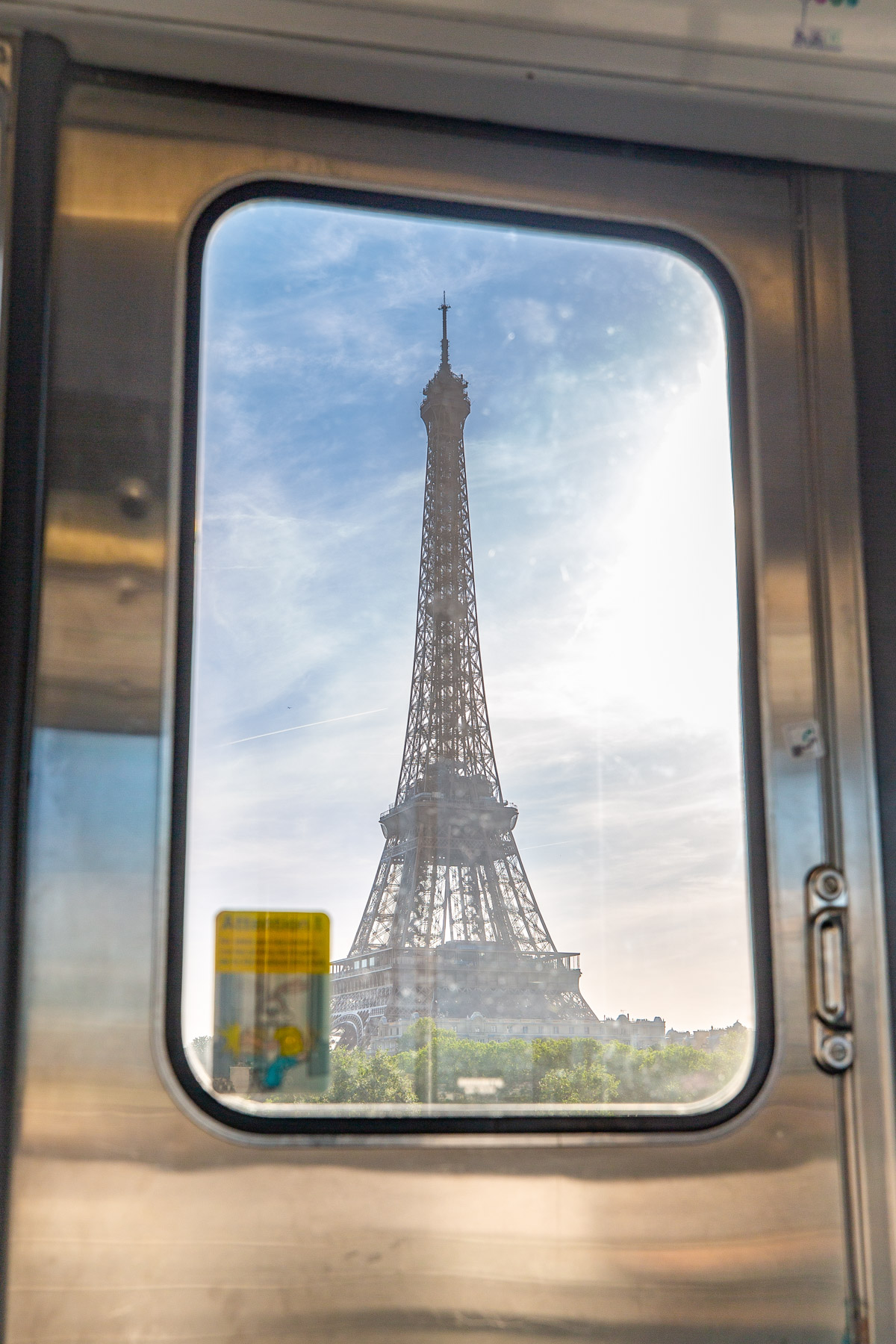
Great (Public) Transportation
The metro is Paris is one of the most efficient modes of public transportation in the world. It was (clearly) thoughtfully designed and is very user-friendly, especially for international visitors.
The system is so efficient, that in 2019, the Paris Metro carried 1.5 billion passengers (roughly averaging 4.1 million riders a day).
Clearly, having access to great public transportation is one of the biggest perks of living in Paris. Heck, I’d go a bit further and suggest getting rid of your car before moving to Paris. Metro tickets come in a variety of packages starting with one-way fares for €2.10 ($2.26). If your job requires a commute, I’d encourage you to look into weekly and monthly passes instead.
Better still, the public transportation tentacles reach beyond the city. One of the biggest perks of living in Paris is having the rest of the European Union at your fingertips.
You can taken trains from Paris to Barcelona, Brussels, London, Milan, Frankfurt and (many) more international cities. Can you imagine a casual weekend trip to Barcelona? What a dream!
Local’s Tip: Pickpockets are active on the subway (especially around tourist hubs like the Louvre and Eiffel Tower). Watch your belongings carefully, the city’s pickpockets are notorious!

The Food Scene is Unmatched
Having world-class restaurants at my finger tips is one of my favorite things about living in Paris. Home to more than 130 Michelin starred restaurants, (the second-most in the world, after Tokyo), it’s safe you say you will never go hungry after moving to Paris.
Thankfully, great bites aren’t reserved for prix-fixe menus with eye-watering price tags! You can easily find a plethora of cheap eats in Paris as well. Restaurants aside, the French are keen on seasonal produce and quality local ingredients for daily meals.
Local farmers markets are easy to come by, and give you access to fresh produce and hard-to-get ingredients imported from across the globe. I’m not a natural cook (wouldn’t do it if I didn’t have to), but even I’ll admit that the fresh ingredients I’ve come across in Paris have make meal prep more enjoyable.
I’ll get flak for saying this, but fruits and vegetables taste better in France (I’m not sure why!). And don’t even get me started on fresh bread and cheese, the foundation of any proper French diet.
While we’re on the topic of controversial food statements, allow to me share one more observation. Meals are way more enjoyable in Paris. Lunch and dinner are relaxed affairs, enjoyed at a much slower pace and often accompanied by wine. In France, eating is a cherished pastime not mere sustenance.

Access to World-Class Museums
Home to a staggering 297 museums, the most of any city in the world, living in Paris is a dream for art enthusiasts and history buffs.
While most museums come with a hefty price tag, I’m happy to report that (by and large) museums are very accessible. Heck, some are completely free, others offer discounted rates and most are free for members of the European Union under the age of 26 (another reason to consider moving to Paris while young).
Plus, almost all museums are free first Sunday of each month (but in my experience, the crowds aren’t worth the trouble).
I have an entire post covering the best museums in Paris, but for the sake of time, I’ll outline a few key players know while considering moving to Paris:
- The Louvre: The crown jewel of France, it’s the the largest museum in the world and attracts around 7.5 million visitors annually.
- The Centre Pompidou: Home to the National Museum of Modern Art, the Centre Pompidou is a a masterpiece for modern art lovers.
- The Musée de l’Armée: Housed in the imposing Hôtel des Invalides, this museum tells the story of France’s military victories throughout history. It’s also home to Napoleon’s Tomb (one of my favorite spots in Paris).
The Healthcare System Doesn’t Suck
Healthcare is a controversial topic regardless of your nationality, and I’m not here to pick sides. But, I will say this: France’s universal healthcare system is tailored to people, not profit. Hailing from the US, this is no small matter to consider before moving to Paris.
In Paris, I get full coverage for free, while in NYC, some of my friends are paying $800 per month with an out-of-pocket max of $9,000 for healthcare. Obviously, there’s some disadvantages to France’s healthcare, the biggest being wait times due to staffing shortages and demand.
With that said these issues are often worth it thanks to the access to basic medicine and care. My healthcare needs have always been met and it’s nice not to stress over an outlandish bill a few weeks down the line.
For those living with long-term health concerns like diabetes and immune disorders, moving to Paris can be a literal lifesaver. Medications that cost hundreds of dollars elsewhere are free in France.
Expats begin receiving healthcare benefits three months after paying taxes, so moving to Paris won’t leave you stranded for long. And last thing, France has the 19th highest life-expectancy (82.8 years) in the world, a whopping 29 spots higher than the U.S. (80.8 years).

The Work-Life Balance
We’ve all heard that living in America is like burning the candle at both ends. You work like made for 50 weeks, vacation for 2 weeks, rinse and repeat for 30 years and then you get to retire. Sounds great, right?
The French are on the opposite end of the spectrum. Work is a means to enjoy daily life, and the paycheck shouldn’t get in the way of that. Want proof? France passed a law in 2000 that limited the amount of hours a person can work to a maximum of 35 a week.
France makes an effort to encourage its citizens stay out of the infamous rat race. I once heard it said that “an American views the weekend as a break from the work-week, whereas the French view the work-week as a pause from the weekend.”
Not just that, a lot of French businesses close for 2-3 hours in the middle of the day, giving their employees a break. This can be a headache if you’re a customer (more on that later) but as an employee it’s a huge benefit of living in Paris.
I know it isn’t all unicorns and rainbows, struggles and poverty are real but the emphasis on enjoying life, not just surviving, is a perk of living in Paris. This emphasis on work-life balance makes Paris a social place. Some of my friends go out for dinner and drinks 4-5 times a week, but hey – when work doesn’t drain you, why wouldn’t you catch up with friends after clocking out?
Employment Benefits
It’s no secret that the United States has a lot of catching up to do when it comes to employee benefits. In fact, a recent study found that my beloved home country is among the among the worst developed countries for workers benefits.
And while France is found in the middle of the list, there’s no denying that it outranks the U.S. And yes, I’m well aware of the 2023 protests over the increase in the legal retirement age from 62 to 64. But, doesn’t that further speak to the resolve of the French people and their expectations for good benefits?
Living in Paris not only provides better retirement benefits, but the benefits while working are much better. For example, in France, employees are entitled to 30 days of paid vacation per year. By contrast, there’s no law in America that speaks to paid days off, it’s up to the employer to make the decision (2 weeks is common).
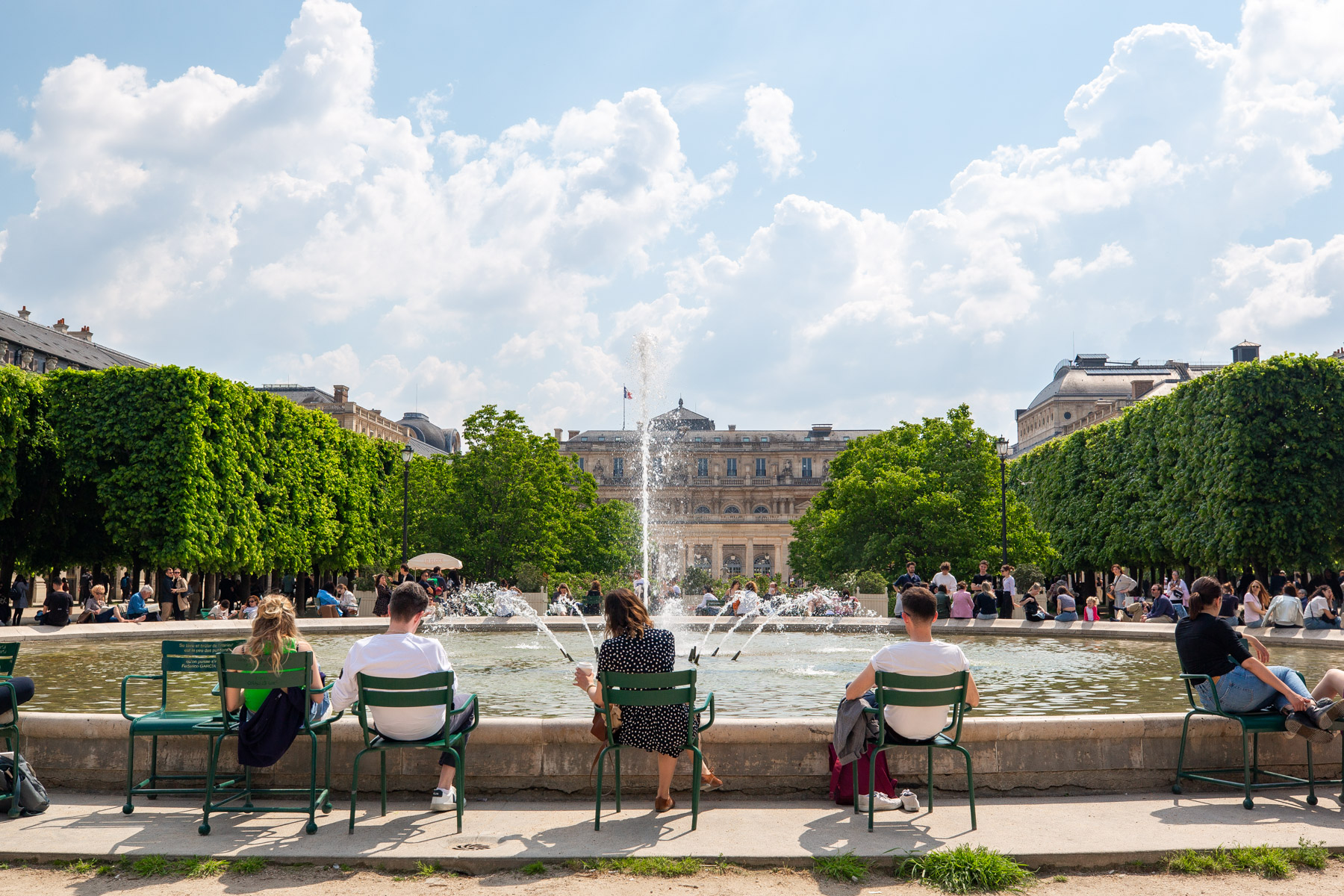
Paid Maternity Leave
Another perk of moving in Paris to start a family is guaranteed maternal leave. In France, women receive up to 16 weeks of paid maternity leave, and are required by law to take a minimum of 8 weeks off. In principle, 6 weeks before the expected date of childbirth and 10 weeks after.
The leave time increases for multiple births (twins) or if health complications arrive. For the arrival of a 3rd child (and any after that), the amount of leave increases to 26 weeks paid. It gets depressing when you consider the United States only offers 12 weeks of (unpaid) maternity leave.
The Disadvantages of Moving to Paris
Living in Paris is Expensive
Has a more obvious statement ever been uttered? Hard to tell. But here’s the thing, daily life in Paris is so damn expensive! In fact it’s the 7th most expensive city in the world. The high cost of living in Paris is one of the biggest disadvantages, especially for those just starting out.
It’s all fun and games when you’re just visiting. A lot of people just swipe the card and act surprised when the statement comes in a few weeks later. Well, that’s a habit you’ll need to break pretty quick after moving to Paris, simply because it’s unsustainable.
For starters, housing prices are astronomical! The average rent will be anywhere between €800 (for a room in a shared space) to €2000 for an unfurnished apartment with utilities. Secondly, minimum wage clocks in at €1,747 per month ($1,882), which means you’ll need to be creative about living in Paris on a budget, unless you have a good-paying job lined up.
Whether it’s compromising on location for a bigger apartment or choosing to live with roommates to afford a social life, living in Paris is a game of chess. The city will tempt you will great restaurants, trendy stores and cutting edge fashion, speaking from personal experience, self control is hard to come by!
Beyond housing, you also have to account for food, commuting and – if you’re lucky – cool experiences. There’s plenty of ways to save money, like cooking at home and limiting outings, but living in Paris is expensive no matter how you slice it
Lack of Green Spaces
Prior to moving to Paris, I befriended a French expat and excitedly told him of my upcoming move. He gave me a word of caution, “to see greenery in Paris requires hopping on the metro. You have to plan to see it, it’s like visiting a museum.”
The reality is a little more nuanced than that. Paris has great parks and green spaces, but he’s right, to see greenery requires effort. Hell, the city’s two biggest parks, the Bois de Vincennes & Bois de Boulogne are found on the outskirts of town.
And the parks that are centrally located (like the Tuileries Garden and Jardin de Luxembourg) are beautiful but mostly gravel. Sure there are trees, but you don’t “lose yourself” in the parks – it still feels like a city. There’s plenty of tree-lined streets in the city, but since most of Paris proper is largely apartment buildings, you won’t see much green space. It’s worth considering for those that rely on nature for dopamine.
A growing body of research shows that people who spend time outside in sunny, green and natural spaces tend to be happier and healthier than those who don’t.
The New York Times
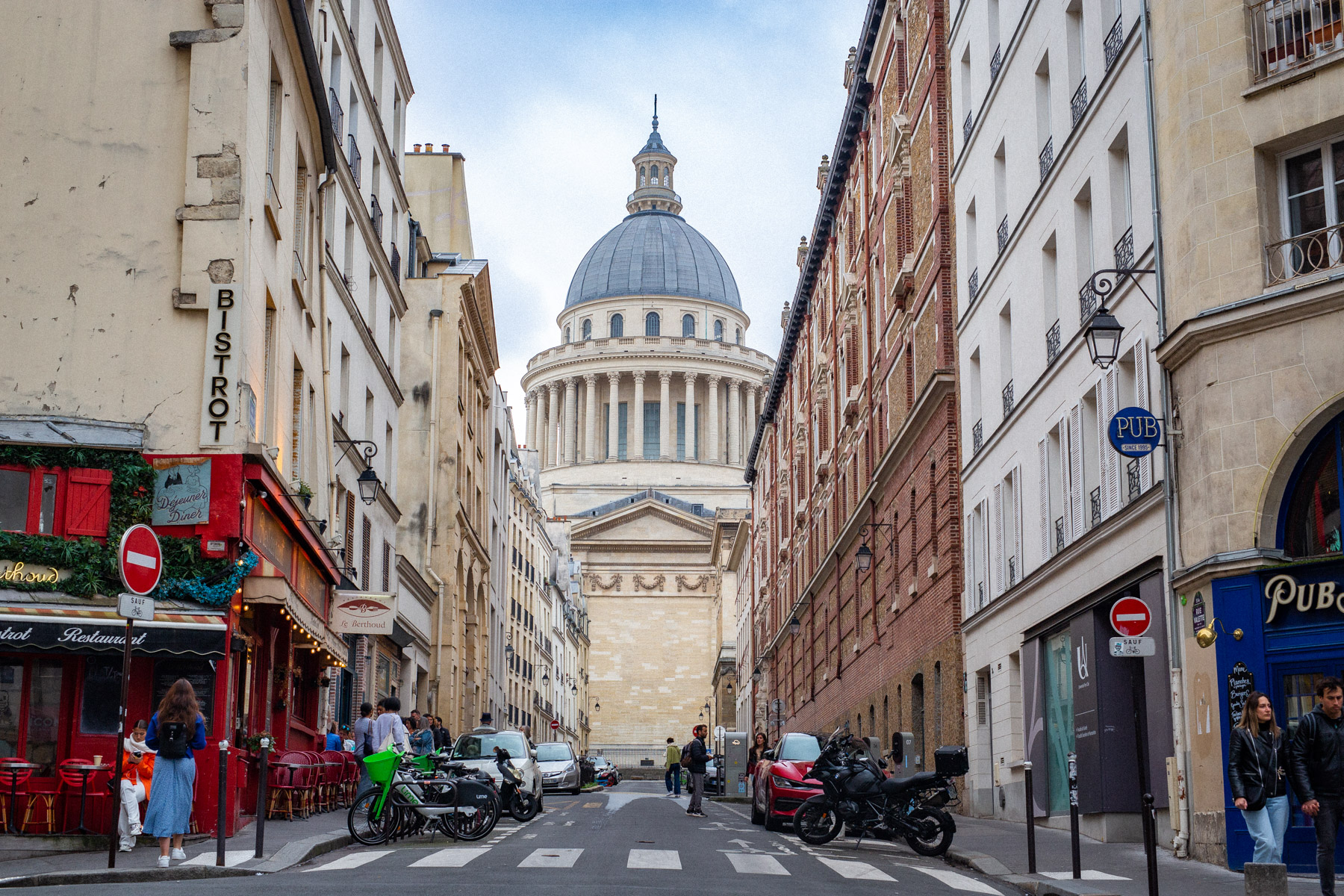
Paris is Densely-Populated
Nothing prepares you for the crowds in Paris. The first time I visited The Louvre with my mom, we called it quits after 30 minutes because she was so overwhelmed. The feeling of claustrophobia goes beyond tourist attractions, daily life in Paris is full of crowds.
The city’s population density clocks in at 56,000 people per square mile. For comparison, New York City is less than half that at 27,000 people per square mile. Lines at the grocery store, packed metro cars and a steady stream of 30+ million annual tourists are all realities of living in Paris.
This also drives up the cost of living since there’s an endless-demand for apartments. Landlords can jack up prices because they know somebody desperate enough will come around and pay it. It’s a huge disadvantage of living in such a desirable place. Comes with the territory, I guess.
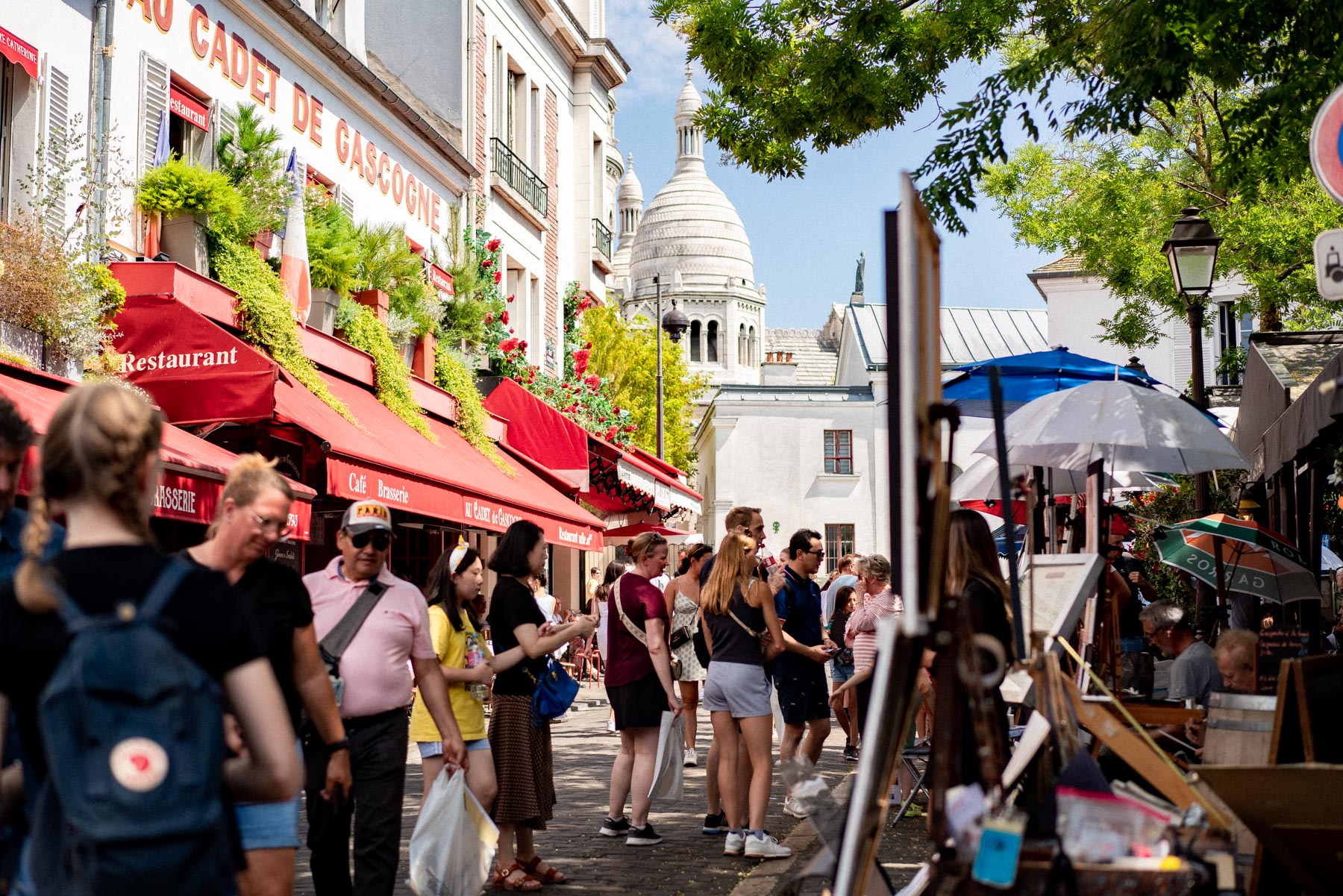
Hot & Humid Summers (Lack of Air Conditioning)
The charming homes of Paris have a downside: it’s difficult to install central air conditioning. The end result? Relying on window ACs, but even those are hard to come by. Most apartments, businesses and restaurants turn into impromptu saunas in the summer.
The average temperature in August (78°F) seems manageable, but the lack of protection from the sun and air-conditioning make it feel hotter than it is. Most Americans (90%) have some sort of air-conditioning, offering at least a little respite from the heat, but that’s not the case in Paris.
That’s why most Parisians leave the city in August, typically in favor of the countryside. During that month, the city is largely left to tourist, essential-workers and tourist-industry employees. While functioning at half-capacity, life can also get harder for those that stay behind. With so many businesses closed for the month, things seem to come to a halt.

Parisians are Reserved
We’ve all heard people say that the French are rude, but that hasn’t been my experience in the least. However, city folks are wired differently from small town and/or suburbs folks, there’s fewer pleasantries and more action. As such, moving to Paris will take some adjustment, especially if you don’t have experience living in a city.
I moved to Paris from NYC, so I was used to the fast pace and hustle, but I can see how that would be a hard adjustment for a lot of people. My best advice? Start learning the language before your move. This effort goes a long way with locals.
It might not solve all your problems and you’ll still likely have interactions with impatient locals but at least you’ll have a grasp at the conversation. You might experience some off-putting behavior (as you would anywhere), but as long as you don’t ride in on a bald eagle declaring America’s superiority over all, you’re good.
This isn’t a major drawback, moreover it’s just something to consider. If you’re thinking of living in Paris (or any big city, for that matter) you’ll grow thick skin in no time. Nothing personal, just busy people making dreams come true, which doesn’t leave much room for small talk.

Paris Syndrome is Real
Remember how I said living in Paris is a dream come true? Well, for some folks, this isn’t necessarily accurate. There’s a phenomena called Paris Syndrome. It’s the intense culture shock tourist experience when visiting Paris for the first time and realizing the city isn’t as romantic as expected. People even experience symptoms like hallucinations, dizziness and vomiting.
Put simply, Paris Syndrome is essentially a deep felt disappointment with what Paris actually is. The city is romanticized in movies and songs, but let’s be honest, it’s a massive city with its fair share of crime, homelessness and dirty streets, like any other.
Some tourists are so shocked they begin experiencing hallucinations. Paris Syndrome was first discovered in the 1980s and there are around two dozen cases a year, largely affecting Japanese women.
If you’re considering moving to Paris, I strongly encourage visiting the city before for an extended period of time. At the very least, get a month-long rental to test out the neighborhood you’re considering. Setting expectations early leads to success!

Second Hand Smoke is a Consideration
Maybe I’m just being picky but there are a lot of smokers in France. When compared to the U.S. where roughly 11% of the population smokes, compared to 25% in France.
This means you’ll have to get used to the constant smell of tobacco while living in Paris.
The French have mastered the “I don’t care” look and it’s only made bolder with a cigarette loosely hanging out of your mouth. I love photographing smokers, it looks edgy but I don’t hang out too long. Smoking is prohibited indoors, but if you’re hoping to enjoy a nice meal outside, you’ll be prone to wafts of cigarette smoke.
I’m not here to lecture anyone, we all got the mandatory lessons on the disadvantages of smoking, I trust you can make your own choices. Just be prepared, the city’s smoking culture is one of the many things to do consider before moving to Paris.
Moving to Paris?
Here’s a small checklist with helpful links to get help get all your ducks in a row before moving to Paris.
As of 2023, the population of Paris is 2.1 million, making it the most populous city in France and the 28th most populated city in the world.

Living in Paris (Post Summary)
In sum these are the pros and cons of living in Paris
- It’s freaking Paris
- Paris is a global city
- Wide ranging transportation options, both within the city and the European Union
- The food scene in Paris has no rival
- Paris is the city with the most museums in the world
- Paris has a top-notch healthcare system
- Paris has amazing institutions of higher education
- Paris provides an opportunity to actually have a life outside of work
- France’s employee benefits are the envy of America
- Paris is one of the most expensive cities in the world
- There is a lack of green-spaces
- The population density can be overwhelming
- Noise-cancelling headphones are a necessity
- Paris has hot summers and no air-conditioning
- Parisians have a (deserved) reputation for being standoffish
- Paris syndrome is a real disease
- You can’t escape the (second-hand) smoke
More Paris Guides
Here are some more of my helpful guides about Paris:
- 20 Iconic Things to Do in Paris During Your First Visit (+Helpful Tips)
- 30 Fantastic Free Things to Do in Paris (That’ll Make Your Wallet Happy)
- 30 Epic Things to Do in Paris at Night (The City of Lights After Dark)
- 25 Romantic Things to Do in Paris (That’ll Make You Fall in Love Again)
And there you have it, my friends. These are the honest pros and cons of living in Paris. Don’t hesitate to reach out with any questions you may have. Always happy to help!
Cheers!


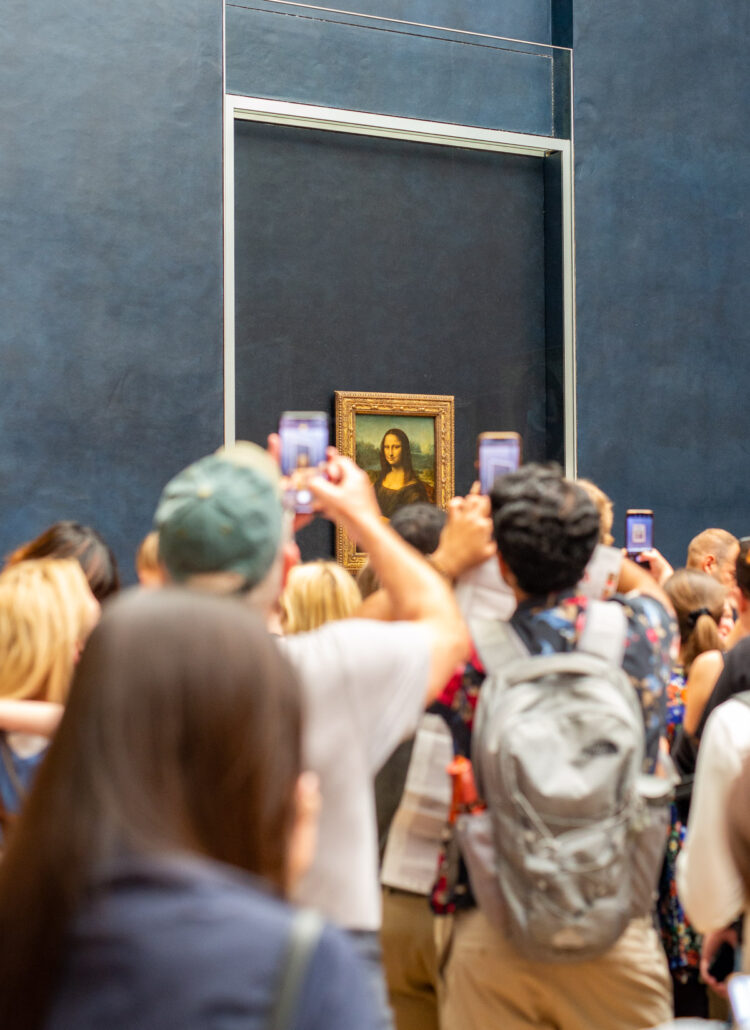

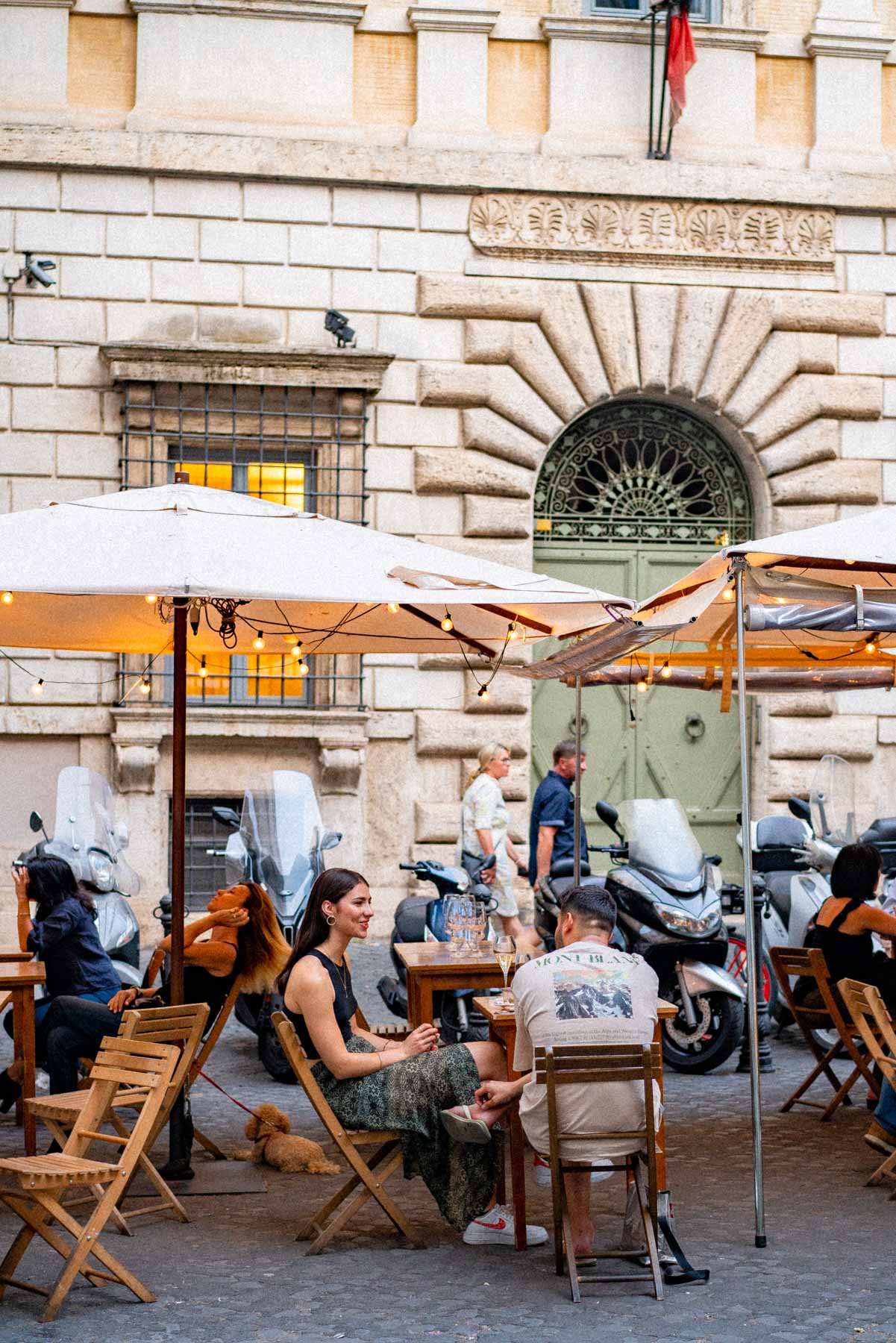
What do you think?